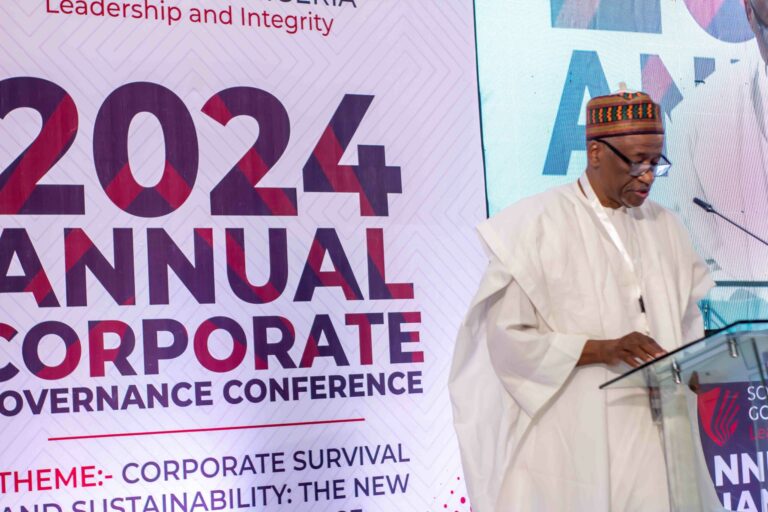Business leaders in Nigeria have outlined key strategies for startups to remain resilient and sustainable as they navigate the challenges of the current economic climate. These insights were shared at an Executive Mixer hosted by Spacefinish and Campus HQ at Flutterwave’s headquarters in Lagos.
The event brought together prominent leaders from the tech and financial sectors to discuss practical solutions that can help startups stay afloat amid economic volatility, currency fluctuations, policy changes, and increasing investor scrutiny.
Building Strong Relationships with Regulators
Oluwafunmilayo Olaniyi, Senior Vice President of Business Development at Flutterwave, advised startups to establish and maintain strong relationships with regulatory bodies. “Policies today may influence your product or service, and tomorrow, the same policies may change. Stay close to regulators and keep informed about upcoming changes that may affect your business,” she stated. Olaniyi emphasized that startups with transparent communication channels with policymakers are better positioned to adapt to sudden shifts in regulation.
Hedging Against Currency Volatility
For Dr. Austin Okpagu, Country Director at VertoFX, managing currency volatility is crucial for startups, especially those relying heavily on the naira. He suggested that startups diversify their holdings across multiple currencies to mitigate risks. “Even the dollar is not a safe haven in this climate,” Okpagu added. He also highlighted the growing role of modern fintech platforms, which allow startups to store and transact in up to 50 different currencies, reducing the need for multiple bank accounts and simplifying cross-border payments.
Okpagu stressed the need for agility, noting that startups can no longer afford to adhere to rigid quarterly strategies in a constantly changing global economy. “Today, many companies are revising their strategies monthly,” he said.
The Future of Business in Africa: Health and Education
Mr. Foluso Phillips, Founder of Phillips Consulting Limited, provided insights into the future frontiers of business in Africa. According to him, sectors like health and education are poised for growth. “People are reprioritizing their needs and are now spending more on education and healthcare. Any business that can meet the demands in these areas will thrive,” Phillips remarked.
Strengthening Governance Structures for Long-term Sustainability
On the topic of long-term sustainability, Mr. Jude Chiemeka, CEO of the Nigerian Exchange Group (NGX), emphasized the importance of good governance and Environmental, Social, and Governance (ESG) practices. “If you want your business to last, consider the impact on the environment and ensure that your governance structure is solid,” he said. He also highlighted the advantages of listing a company on the stock exchange, noting that a listed company benefits from price discovery and adheres to robust governance frameworks.
“Without the right governance structure, even the best-run businesses will struggle to attract funding,” Chiemeka said. He pointed out that companies listed on NGX’s premium board are attracting more institutional investors due to their strong governance frameworks.
The Call for Good Corporate Governance in Nigeria
The second edition of Blakey’s National Economic Conference underscored the urgent need to promote good corporate governance practices in Nigeria. The conference, held in Lagos under the theme “Good Governance: Pathway to Progress,” emphasized that effective governance enhances an organization’s reputation, attracts investors, and ensures responsible and ethical management.
Tony Chinwe, speaking on “Building Integrity: The Role of Good Corporate Governance in Promoting Transparency and Accountability,” defined corporate governance as the framework that guides an organization’s direction, control, and accountability. He explained that good governance is vital in promoting transparency and trust, particularly in a country like Nigeria, where corruption and lack of transparency remain significant challenges.
Despite the importance of good corporate governance, Chinwe acknowledged that Nigeria faces challenges such as corruption, weak regulatory frameworks, and inadequate enforcement mechanisms. He stressed the need for effective policies and regulations to overcome these barriers.
Visionary Governance for National Growth
Blakey Okwudili Ijezie, the conference convener, reiterated that good governance is the cornerstone of national development. “Where governance is visionary, transparent, and accountable, nations rise. Where it is weak and corrupt, even the most resource-rich countries falter,” Ijezie stated. He argued that Nigeria’s challenges stem not from a lack of potential but from the failure to unlock that potential through strategic leadership and institutional reforms.
Ijezie called for inclusive governance, urging the involvement of youth, women, the diaspora, traditional institutions, and civil society. “Nigeria will not change by default. It will change by design, and that design must be rooted in good governance,” he concluded.

